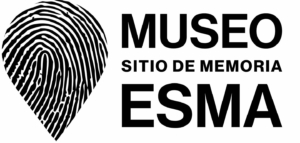As part of the actions surrounding the candidacy of the ESMA Museum and Site of Memory for the UNESCO World Heritage List, the public conference “Protection of Cultural Heritage Linked to Human Rights. MERCOSUR Experiences” was held on Wednesday, June 16. The event featured contributions by referents, specialists and officials of the region. The opening speech was given by Horacio Pietragalla Corti, Secretary of Human Rights, and Juan Valle, Undersecretary of Latin American Affairs of the Foreign Ministry, who highlighted the importance of regional coordination in the link between Cultural Heritage, Human Rights and Public Policies.
From different institutions, perspectives and fields of knowledge, the following guests were invited to give an account of the formulation and execution of public policies: Ariela Peralta (Executive Secretary of the Institute of Public Policies on Human Rights of MERCOSUR), Leonardo Castriota (President of ICOMOS Brazil and Vice President of ICOMOS International), Viviana Usubiaga (National Director of Patrimonial Management of the Ministry of Culture of Argentina), Francia Jamett (National Manager of the Memory and Human Rights Unit of the Ministry of Culture, Arts and Heritage of Chile) and Alejandra Naftal (Executive Director of the ESMA Museum and Site of Memory).
“Just as the Condor Plan was executed very smoothly across our countries, it is very important that we can now exchange experiences between neighboring nations, share progress and setbacks, and work to consolidate public policies related to Human Rights in the southern hemisphere of our beloved Patria Grande”, said Pietragalla Corti, who highlighted the path that Argentina has taken in terms of Human Rights since 2003, as well as the resistance of the Argentine people against attempts to divert it.
For his part, Valle highlighted «the joint effort to bring together experts who reflect on how the protection of cultural heritage can contribute to consolidating the policy of promotion and protection of all Human Rights in our region.» The Undersecretary for Latin American Affairs of the Ministry of Foreign Affairs pointed out that «Argentina has developed a state policy based on the pillars of Memory, Truth and Justice» and that the candidacies of the ESMA Museum and Site of Memory for the MERCOSUR List of Cultural Assets and for the UNESCO World Heritage List fall within that path.
Once the public conversation started, moderated by the Executive Director of Memoria Abierta Verónica Torras, the speakers exchanged ideas on the current debates and agendas of the institutions they represent and the challenges associated with social participation, cooperation with other institutions, and the criteria for inclusion of Memory Sites and Spaces in Patrimonial Lists, among other topics.
“Sites of Memory can contribute to the transmission of collective memories, but they are also useful and fundamental tools for a pedagogy that favors the assurance that the events that occurred there will not happen again. They also contribute to restoring the dignity of the victims”, Peralta summarized. The official reviewed the IPPDH’s Fundamental Principles for Public Policies on Sites of Memory.
In his turn, Castriota stressed that «the approach of Cultural Heritage and Human Rights is something quite recent» and that «it opens up other dimensions of the human experience.» “The human person is placed at the center of the heritage preservation experience. The meaning of the site, the values that society attributes to it, are protected rather than its materiality”, he said while going through some examples of protected spaces under this notion.
Usubiaga, from the Ministry of Culture, went over examples of management of spaces where heritage and Human Rights converge, as well as strategies to activate these heritages with artistic and poetic interventions. The official stated the ministry she represents supports the candidacy of the ESMA Museum and Site of Memory, and defined it as the «initial milestone of the global expansion of a site that offers new forms for a communal, respectful and sympathetic life».
Jamett, who fought for the development of regional public policies that protect these sites, also offered her support from Chile. “Spaces of Memory are fundamental because the struggle is waged within them for the meanings of the past, which are the ones that compromise the power relations that dominate the present”, she stated. The Chilean official presented some examples of experiences in the neighboring country regarding Heritage and Human Rights.
Finally, Naftal provided the details of the application that aims to place the Museum as a contribution to the Cultural Heritage of the world, and concluded: “The experience that the Museum can contribute is the work methodology that we have had from the beginning, which is that of consensus. Participation and plurality are fundamental pillars in this relationship between Human Rights and Heritage, because the latter contemplates both material aspects and values”.



